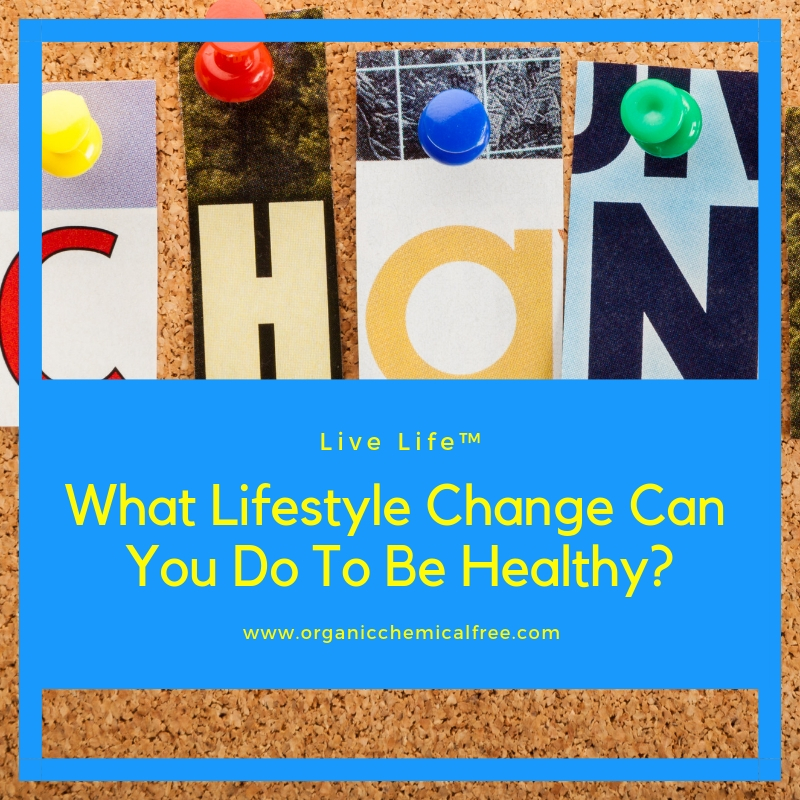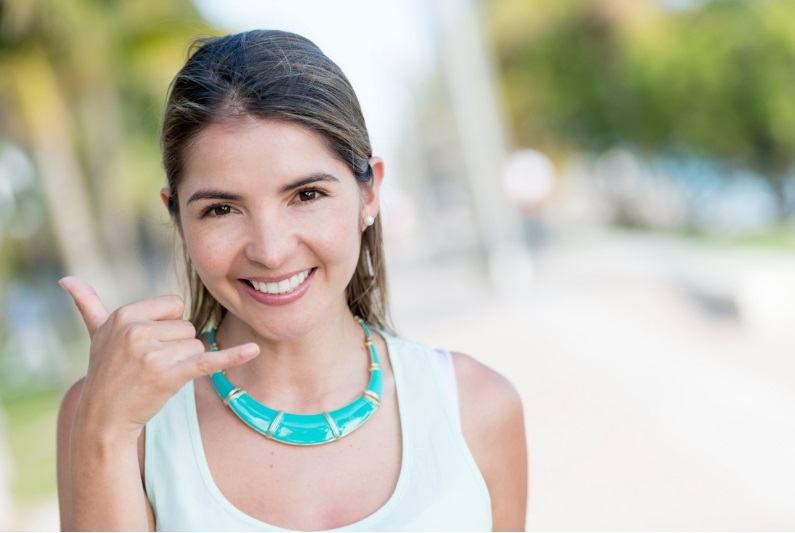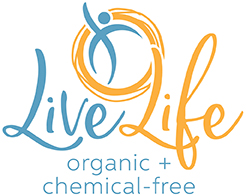
Are you wondering what lifestyle change you can do to be healthy?
Have you considered creating an organic, chemical-free household?
Chemicals in our everyday products (food, clothes, personal care products, cleaners, household items, furniture, building materials) may be linked to over 140 health conditions.
But making this lifestyle change, like other types of lifestyle change, means you will encounter naysayers and challenges but also reap the rewards of becoming the YOU that you want to be.
In the words of an anonymous author who’s wisdom hangs on our refrigerator,
“Life isn’t about finding yourself. Life is about creating yourself.”
-Anonymous
Creating a life with fewer chemicals is becoming easier, with more people every day becoming aware and wanting to live healthier happier lives.
But there are still challenges.
Naysayers
Naysayers are people that don’t believe, don’t understand, or simply don’t care about chemicals in everyday products and their links to health effects. I’ve heard comments like, “I’m too old to be worried about it,” “This is how life is for everyone,” and “It’s old age (at age 30).”
When I made a lifestyle change to living life with fewer chemicals, I wanted to think that every one of my family, friends, and colleagues would understand, be supportive, and be interested in this change I was making. Especially since it had such a large impact on my (and my son’s) health.
Truth be told, that wasn’t the case.
I’ve heard similar experiences time and time again when people make lifestyle changes of any kind, even life changes that are well understood and easily achievable.

As you start to live life with fewer chemicals, you will likely encounter naysayers. It might be your friends. It might be your family. It might be your spouse or kids.
In my own experience, I have had all of those categories of people in my life that started out not understanding. Some people were rude and degrading. I’ve been called a number of names that I don’t care to repeat here.
I’ve also been described as a hippie, natural, and radical. What’s funny to me is that living life with fewer chemicals is not hippy or radical. It is becoming a norm. It is becoming mainstream society, and a lot of people are moving towards fewer chemicals.
Organic stores (food with no chemicals) are popping up everywhere, and traditional stores are dedicating space to organic food sections.
Public school educators are teaching students about the chemicals in agriculture classes (which also address organic farming), and about chemicals in our food supplies and how these chemicals are affecting young people’s health and behavior.
While it’s not a radical idea, it IS still an emerging idea. The general public is trying to wrap their minds around it.
Further, even when people understand one piece, they often times don’t understand the full picture.
For example, maybe a person understands healthy eating or organic eating, but it’s not even on their radar that building products in their home are off-gassing chemicals into the air.
Or maybe they understand that cleaners can be toxic but they don’t know that their clothing could be causing immune systems to be stressed.
What happens as you start to make changes to live a life with fewer chemicals, is that some of the people you’re surrounded by can’t relate.
They can’t relate to what you’re doing. They can’t share your excitement. They can’t quite get past their surprise that this is what’s happening in our world.
How do you handle that?
Create a Healthy Lifestyle Team
Create a team of people that believe you. That understand you. That know this is real. They may not believe in every single detail that you do, but they largely are trying to live their lives the same way.
We all, as human beings, want to be understood. We want to be loved. We don’t want people to tell us that we’re crazy or outcasts or that we’re over the top. Because we’re not.
It’s emotionally and physically exhausting to constantly have to “prove” to the people close to you that you’re not crazy or an outcast or over the top. Spending time that way is a drain of one of the most precious resources we have—time.
Instead, spend the majority of your time surrounded by your team that is there to help you, and you them.

I’m not saying you should snub people that don’t understand or don’t care to. I’m saying to spend limited amounts of time trying to educate those people, while spending most of your time and energy focused on your goal of living life with fewer chemicals.
On your team, include a doctor that has a certification in environmental medicine. That’s important in helping to continue to understand exactly what’s going on and to create a plan that is tailored to you, particularly if you have medical conditions.
If you choose an MD (medical doctor) that is certified in environmental medicine, they could be helpful in considering how the environment could be impacting your health and couple that with western medicine. The result could be an individual health plan that combines the best of both worlds.
The American Academy of Environmental Medicine has a physician locator on their website that is helpful in finding doctors practicing environmental medicine.
Chiropractors, acupuncturists, and yoga and meditation instructors are all examples of people that typically lead healthier lifestyles and may be in tune to the chemicals in our everyday products. Consider adding these folks to your team if you think they’re a good fit for you.
You’ll also want a friend or two on your team. Ideally they would be interested in living a similar lifestyle as you.
However, since living life with fewer chemicals is still an emerging idea (so many people don’t know there are chemicals in our everyday products), you may not know one or two friends that are on board with the idea.
The next best thing is to identify friends that are supportive in general and are excited about your personal journey, even if they don’t understand or believe in living life with fewer chemicals.
Lastly, connect with organizations that are PASSIONATE! about living life with fewer chemicals. These organizations may be closer to you than you think.
California and the companies located there have been leaders in educating and producing products with fewer chemicals. But you don’t have to live on the coast to have these companies (and people!) close by.
Here in Wisconsin, we have organic GOTS certified wool bed manufacturers, organic veggie farms, and organic dairy farms within a few miles of my favorite places to go.
I could literally “drop by”—they are that close. These are companies that are well known nationally. It’s incredible to me that companies like this are in our local community.
Become surrounded by people that can help you live life with fewer chemicals, and help them out as well! Become connected to these types of companies and join their social media communities.
In addition to groups passionate about living life with fewer chemicals, join groups that will help you achieve related goals, such as scaling back on the number of items in your home.
Groups like The Minimalists may be helpful to have on your team if you subscribe to the idea that less is more (thereby reducing the number of chemicals that may be off-gassing in your home). The Minimalist group could help with the “buy less items” side, and others on your team could help with the less chemical portion of your lifestyle change.
So what do you do with your team?
Run ideas past them, get together for tea, send each other helpful tips or information, and have fun with it!
Offer to help people on your team in choosing products that are healthier. And ask them for what you want to know or need help with.
Ask for What You Want or Need
It’s amazing how little we, myself included, actually ask others for what we want or need. We’re paralyzed by fear and tell ourselves that so and so doesn’t have time for me, or that person would never return my call.

And we never even try.
But when we do, doors start to open.
People love to help other people.
Even if that person can’t help you in the moment, they come across people or resources and think of you. This has happened to me many times, but the most memorable moment I have was from 2010.
I was looking to purchase a home built between 1960 and 1975 that had not been updated, and therefore would contain fewer chemicals from new products off-gassing. I explained this in a letter along with a short reason of why. I printed multiple copies of the letter, hand signed every one, and mailed them to over 100 homes in the town I lived in.
Silence. I didn’t receive one response.
Fast forward seven years to 2017. One of the letter recipients, Kate, was ready to sell her home and move to a retirement facility. She remembered the letter I had sent back in 2010 and offered to sell her home to me, before it was advertised as being for sale or listed with a realtor.
Had I not asked for what I wanted or needed, I would not have had the opportunity to buy her home.
On a smaller scale, this occurs daily.
People telling other people that they’re looking for organic soap, and voila! They think of the place they happened to see an organic soap display.
If you don’t put it out there, if you don’t ask people for what you want or need, they don’t know and they can’t help you.
I’ve had my share of unpleasant experiences in this world, but largely the number of amazing people and amazing opportunities out there for all of us to connect to, far exceed what we think is possible.
You just never know what will happen, if you just ask.
